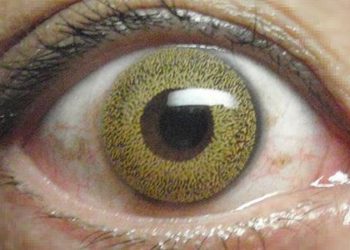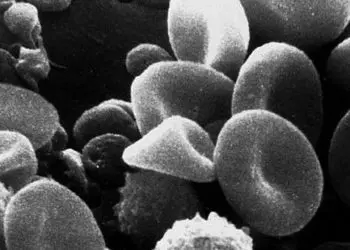Biennial mammography confers increased specificity for cancer screening
[tabs tab1=”2MM Rundown” tab2= “2MM Full Report”]
[tab]
Image: PD
1. Among women aged 50-74 years old, biennial mammography screenings resulted in less false-positives and similar risk of advanced stage cancer.
2. Women aged 40 to 49 years with extremely dense breasts were more likely to have advanced stage cancer and large tumors when receiving biennial as compared to annual screenings.
This study showed that the newest USPSTF mammography guidelines, which recommend biennial screenings in women aged 50 to 74 years, results in a lower rate of false positives and similar risk for diagnosis of advanced disease in this age group. In 40 to 49 year-old women with extremely dense breasts, however, biennial mammography was associated with an increased risk of advanced stage disease. This study suggests women ages 40-49 years old who choose to undergo annual screening should be advised that their risk of false positives is higher, particularly if they have extremely dense breasts or are on HRT.
Strengths of this study include longitudinal cohort study design and a large, representative national sample. Limitations include lack of long-term follow-up to assess disease outcomes, including mortality rates. Future studies might assess additional risk factors and explore the relationship between mammography screening interval and breast cancer treatment choices and long-term outcomes.
Click to read the study in JAMA Internal Medicine
[/tab]
[tab]
Image: PD
1. Among women aged 50-74 years old, biennial mammography screenings resulted in less false-positives and similar risk of advanced stage cancer.
2. Women aged 40 to 49 years with extremely dense breasts were more likely to have advanced stage cancer and large tumors when receiving biennial as compared to annual screenings.
This [retrospective cohort] study included prospectively-collected data from women undergoing mammography at Breast Cancer Surveillance Consortium registry sites between 1994 and 2008 and included 11,474 women with breast cancer and 922,624 healthy women. Over this time period, screening intervals were annual (9-18 months apart), biennial (>18-30 months apart) and triennial (>30-42 months apart). Risk factors assessed include age, breast density and postmenopausal hormone therapy (HT). Outcomes measured were tumor stage and size, and false positive results.
In all women ages 50-74 years, including women with dense breasts and/or on HRT, biennial screening did not result in significantly higher risk of advanced stage breast cancer and resulted in less false-positives when compared to annual screening (10-year cumulative probability of ≥1false positive with biennial screenings: 31%, and with annual screenings: 50%). In women ages 40 to 49 years with extremely dense breasts, biennial screenings were associated with an increased risk of advanced stage cancer (OR 1.89, CI 1.06-3.39). Cumulative incidence of false positives among women ages 40-49 receiving annual screenings was high (66% in women with dense breasts; 66% in women on HRT).
In sum: This study showed that the newest USPSTF mammography guidelines, which recommend biennial screenings in women aged 50 to 74 years, results in a lower rate of false positives and similar risk for diagnosis of advanced disease in this age group. In 40 to 49 year-old women with extremely dense breasts, however, biennial mammography was associated with an increased risk of advanced stage disease. This study suggests women ages 40-49 years old who choose to undergo annual screening should be advised that their risk of false positives is higher, particularly if they have extremely dense breasts or are on HRT.
Strengths of this study include longitudinal cohort study design and a large, representative national sample. Limitations include lack of long-term follow-up to assess disease outcomes, including mortality rates. Future studies might assess additional risk factors and explore the relationship between mammography screening interval and breast cancer treatment choices and long-term outcomes.
Click to read the study in JAMA Internal Medicine
By Denise Pong and Leah Hawkins
More from this author: New approaches effective in screening embryos for diseases, Updated Pap smear screening guidelines may delay diagnosis of cervical adenocarcinoma in situ, Maternal asthma associated with increased odds of spontaneous abortion
© 2013 2minutemedicine.com. All rights reserved. No works may be reproduced without written consent from 2minutemedicine.com. Disclaimer: We present factual information directly from peer reviewed medical journals. No post should be construed as medical advice and is not intended as such by the authors or by 2minutemedicine.com. PLEASE SEE A HEALTHCARE PROVIDER IN YOUR AREA IF YOU SEEK MEDICAL ADVICE OF ANY SORT. Content is produced in accordance with fair use copyrights solely and strictly for the purpose of teaching, news and criticism. No benefit, monetary or otherwise, is realized by any participants or the owner of this domain.
[/tab]
[/tabs]



![2MM: AI Roundup- AI Cancer Test, Smarter Hospitals, Faster Drug Discovery, and Mental Health Tech [May 2nd, 2025]](https://www.2minutemedicine.com/wp-content/uploads/2025/05/Untitled-design-350x250.png)





